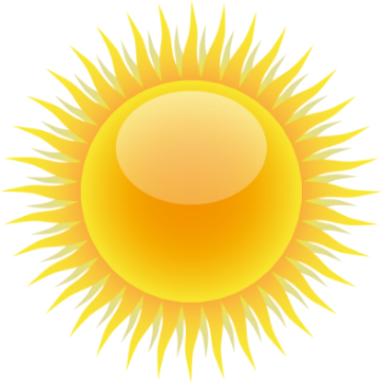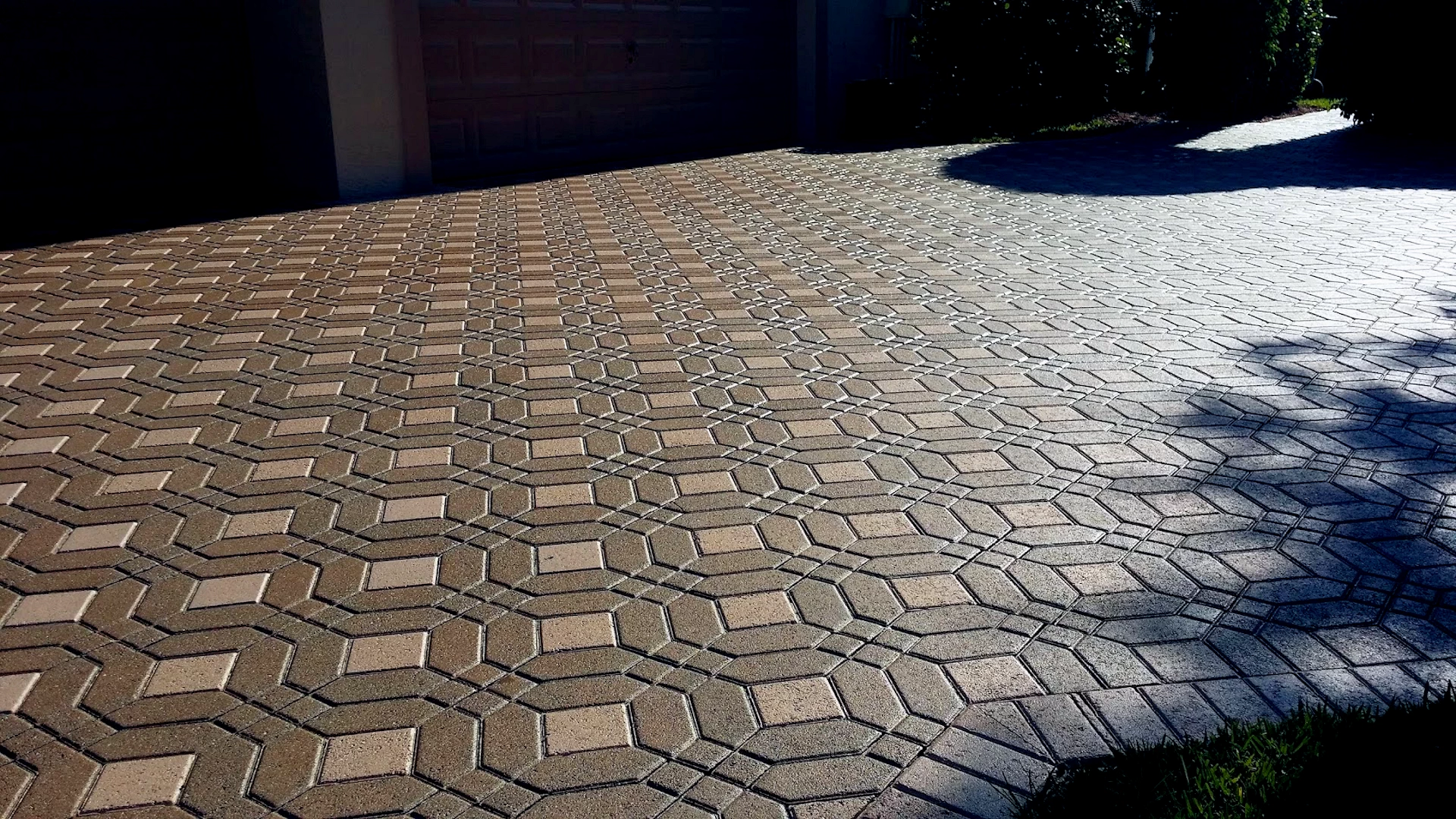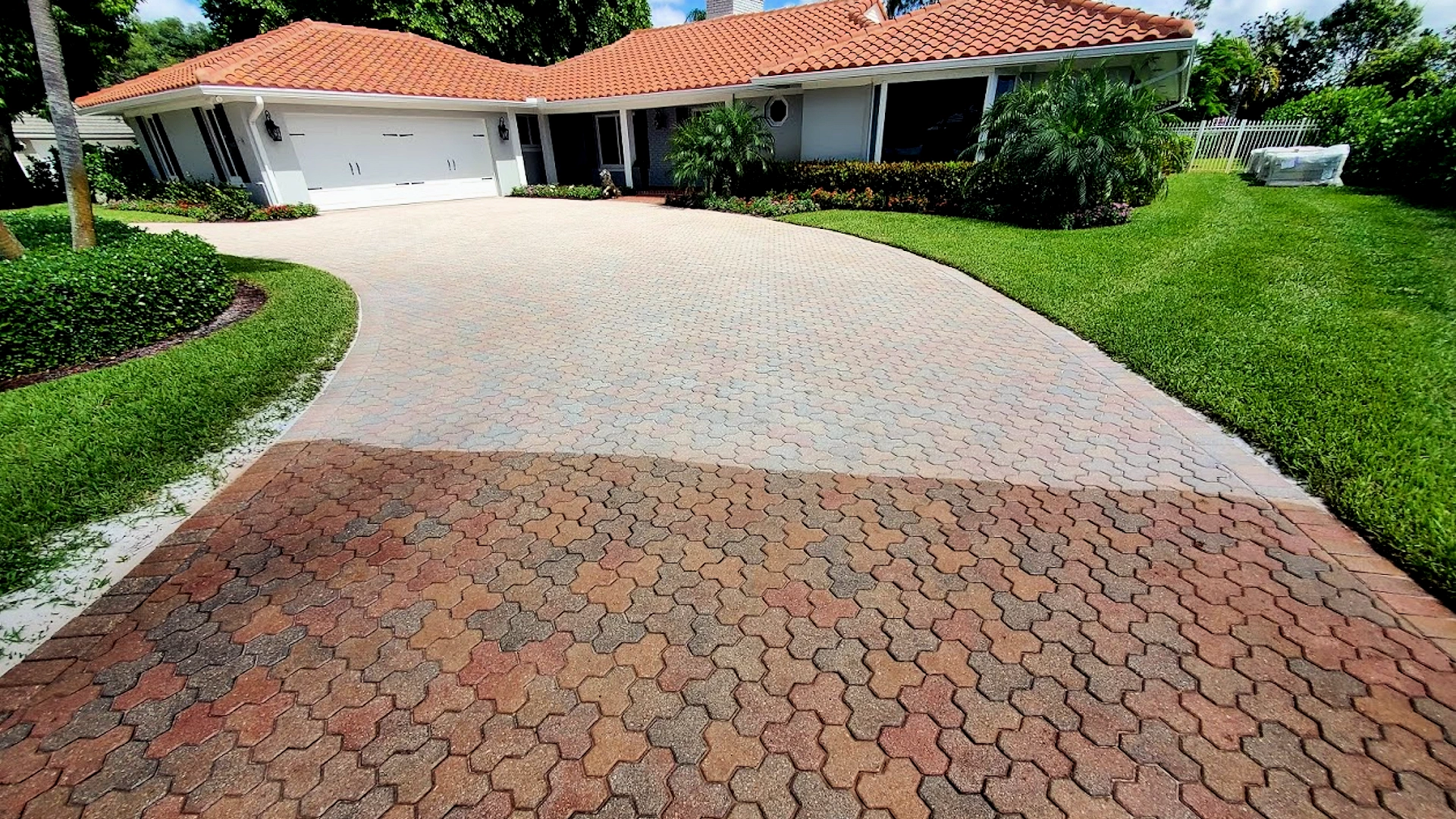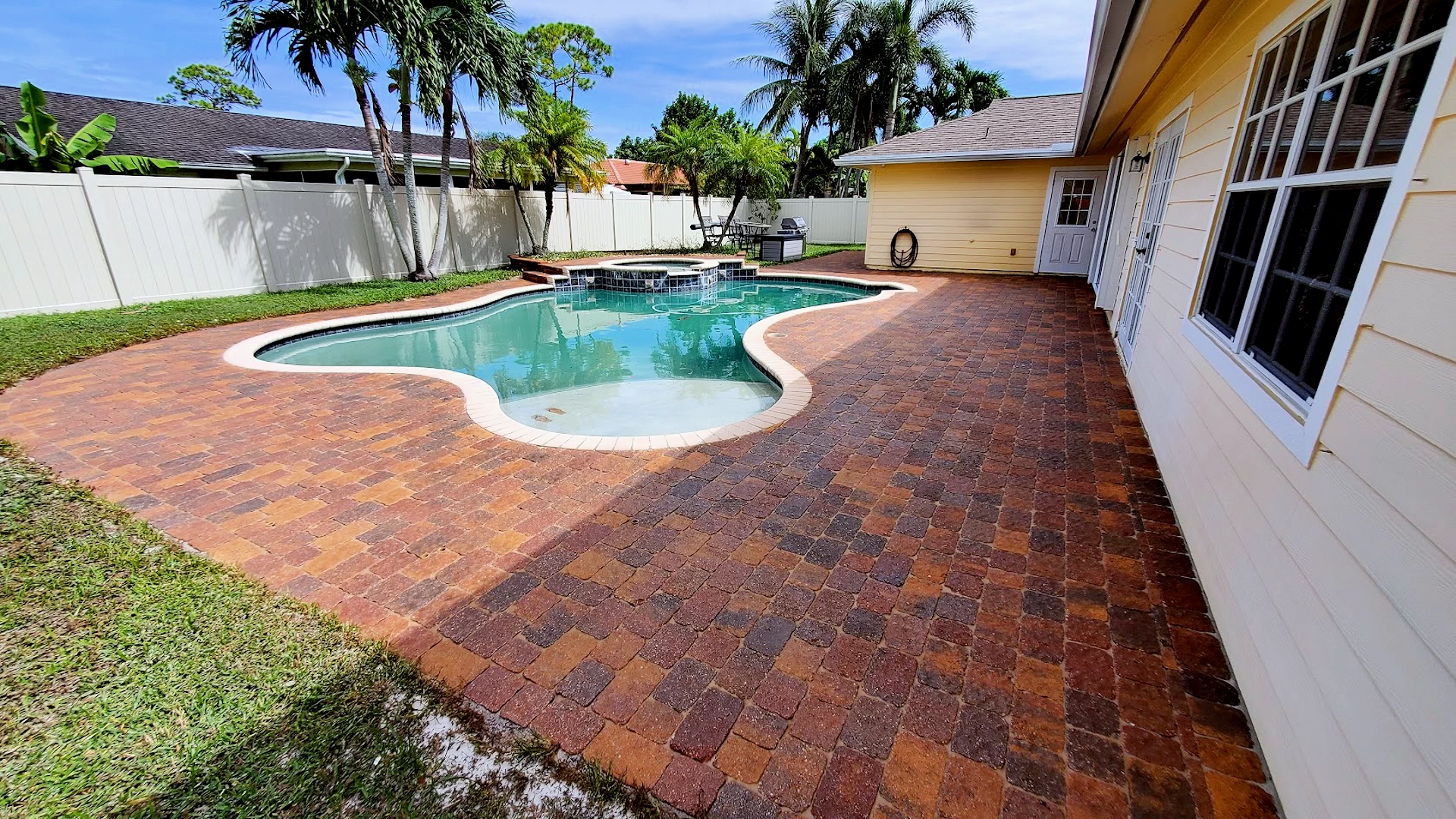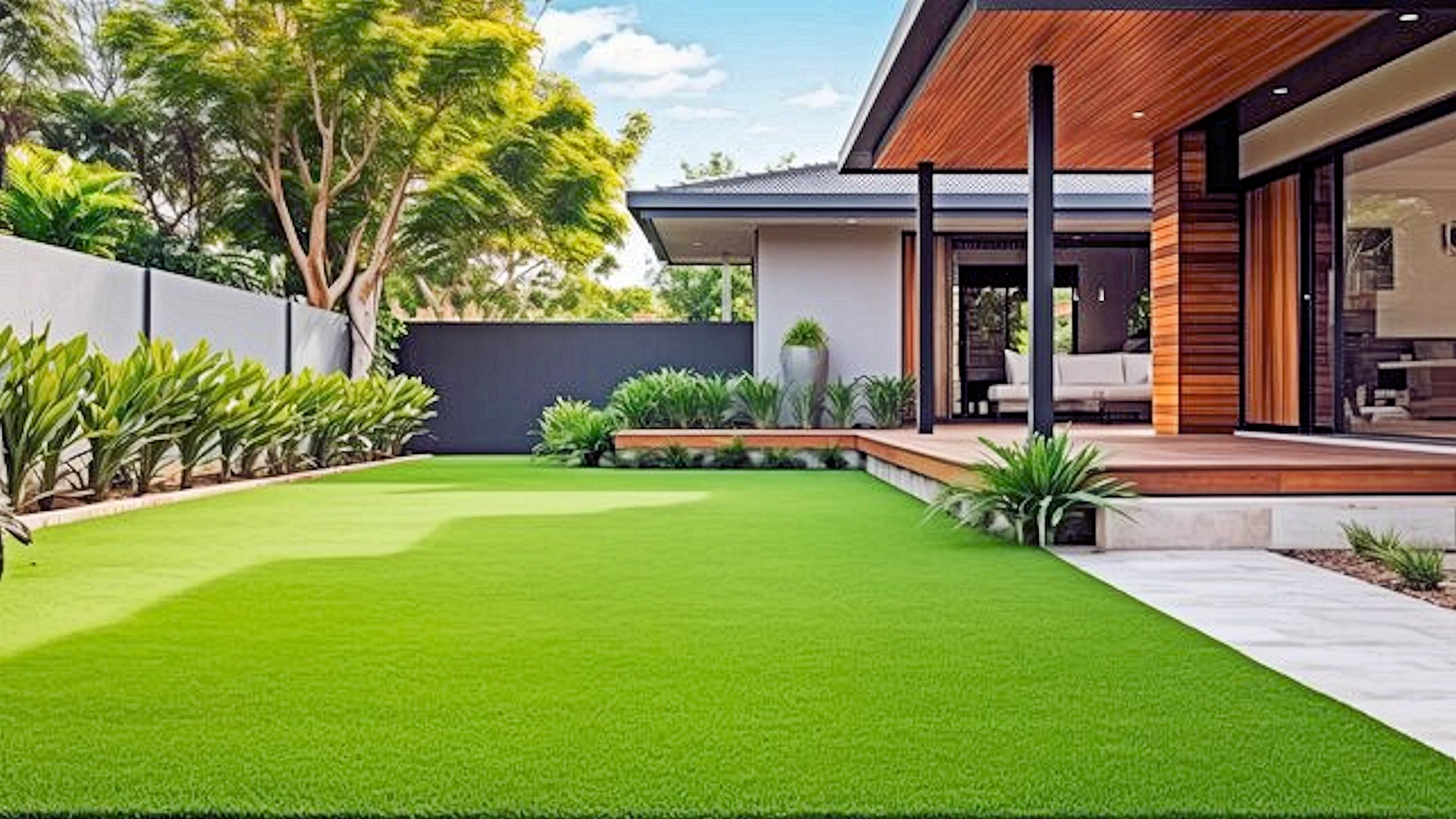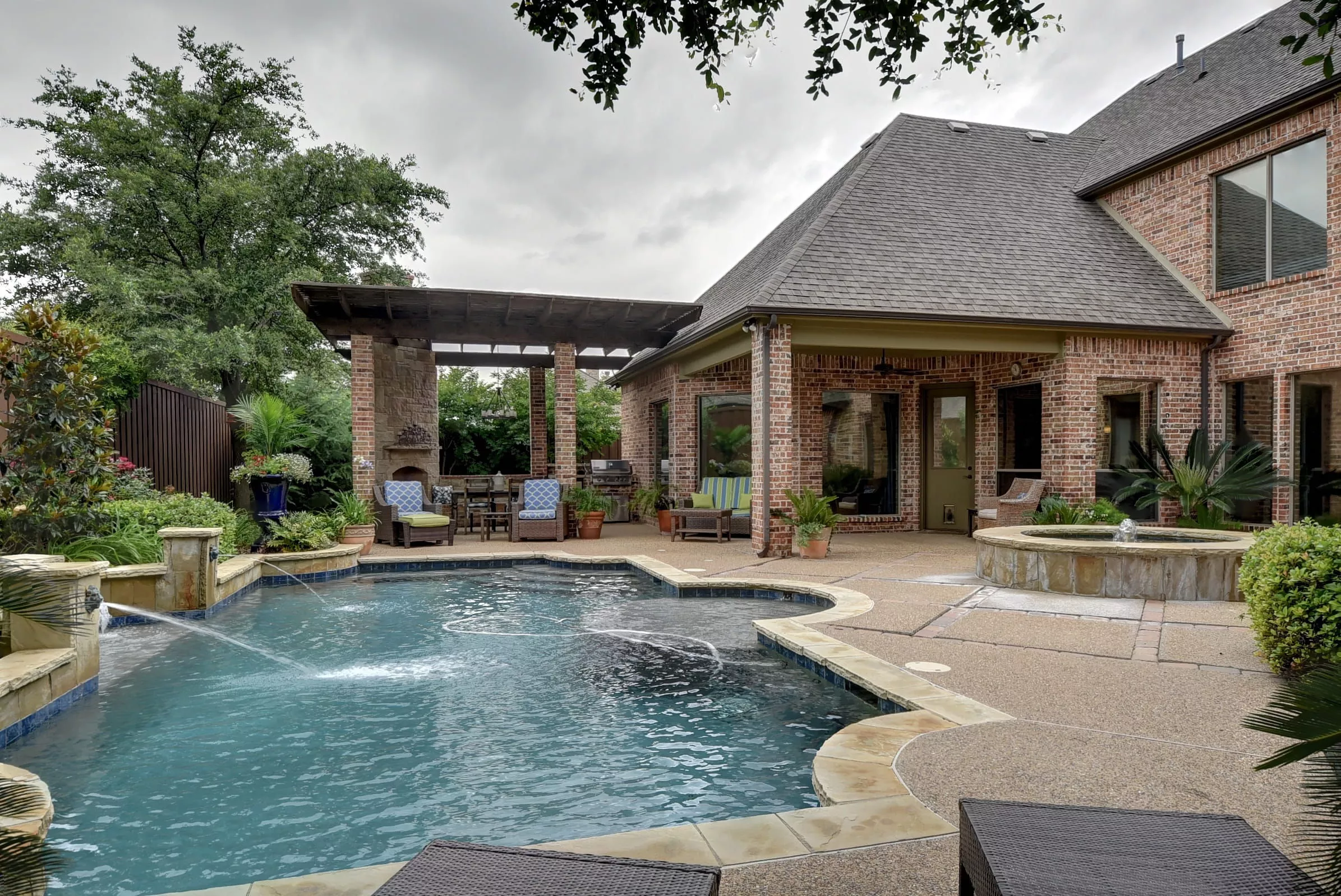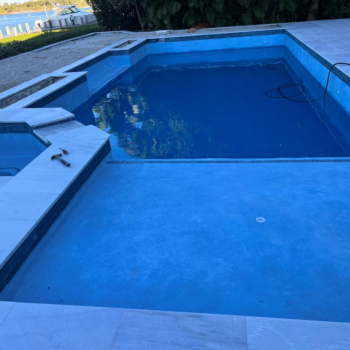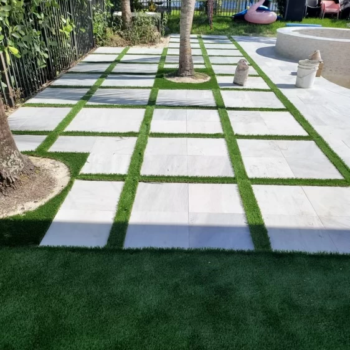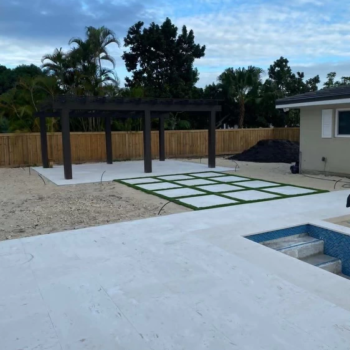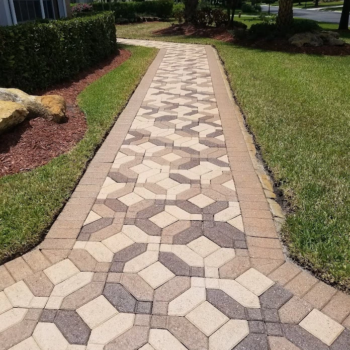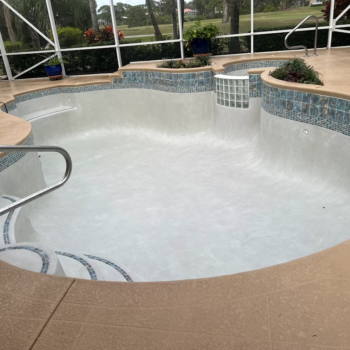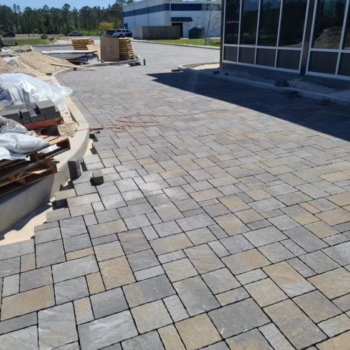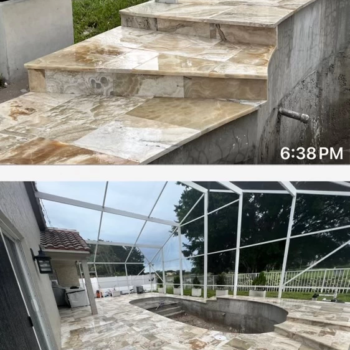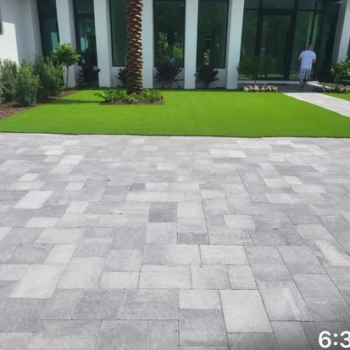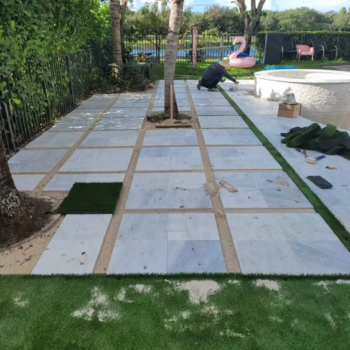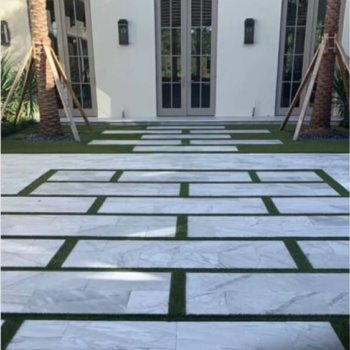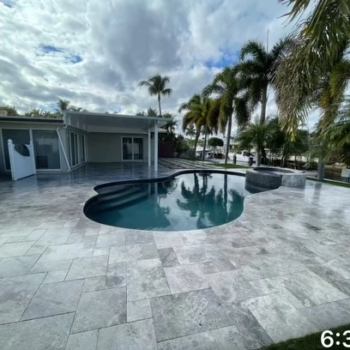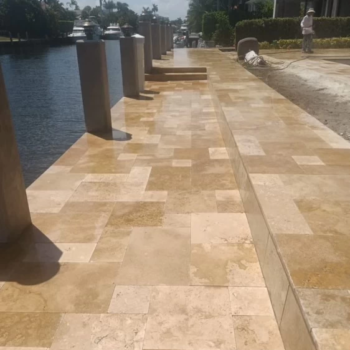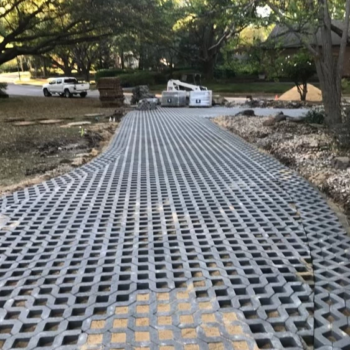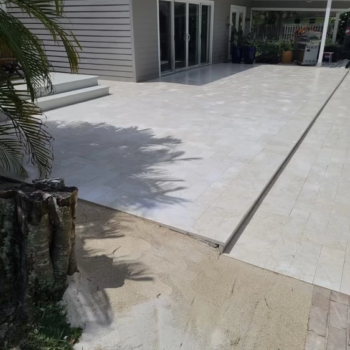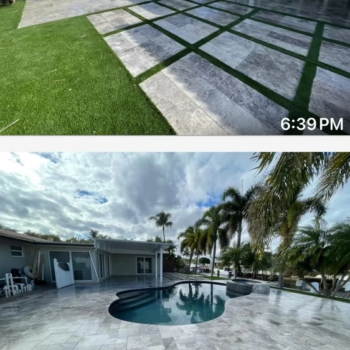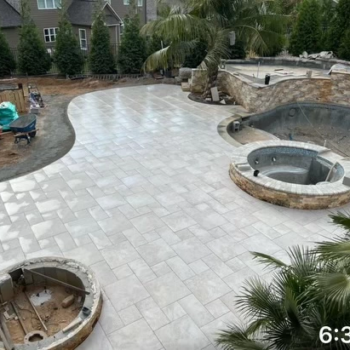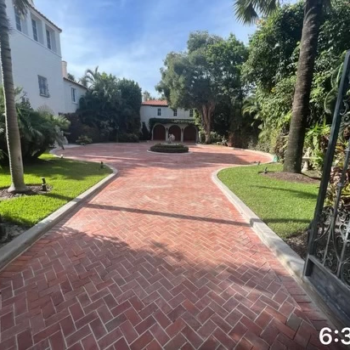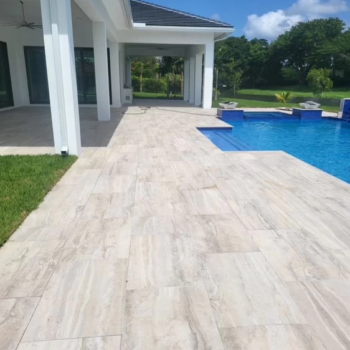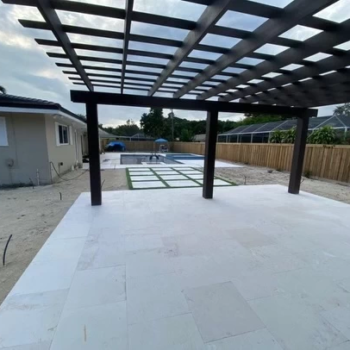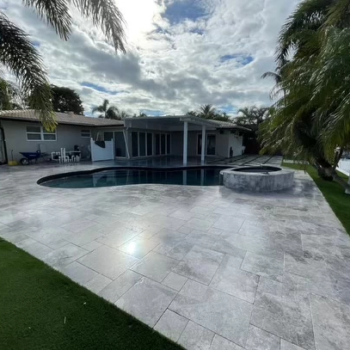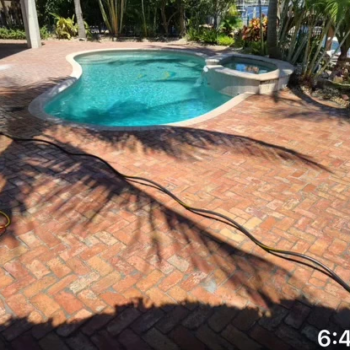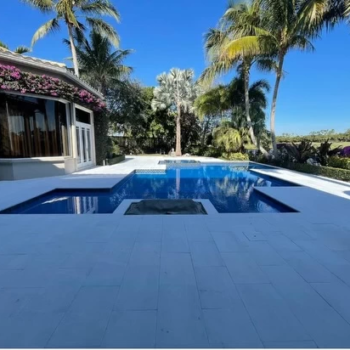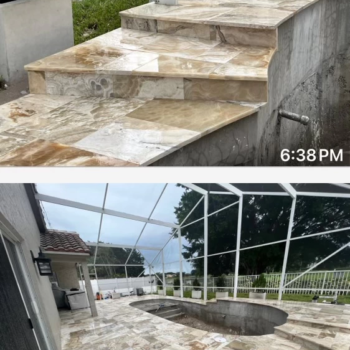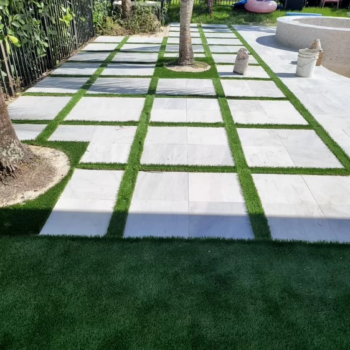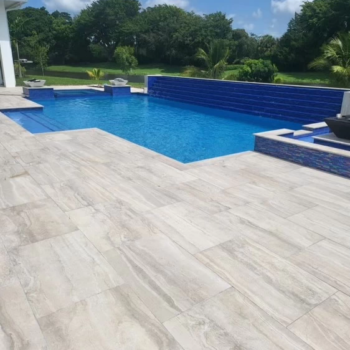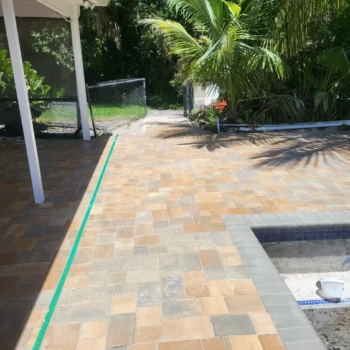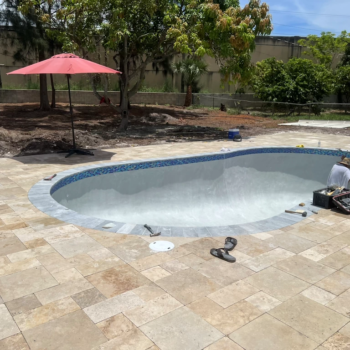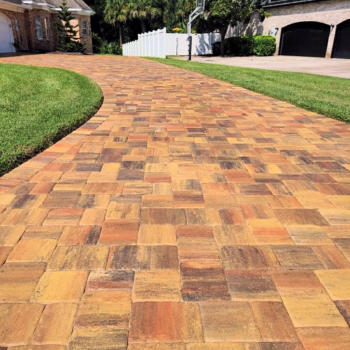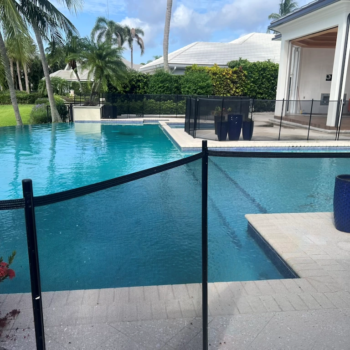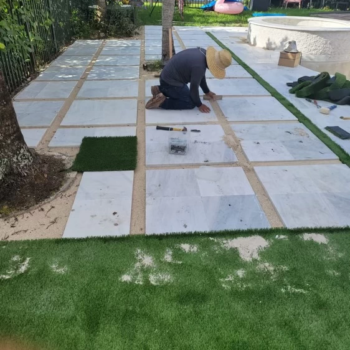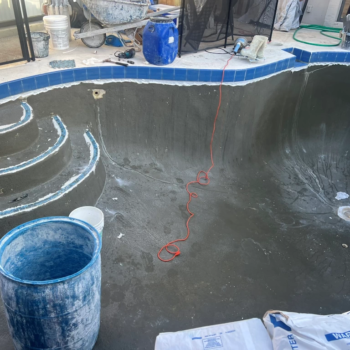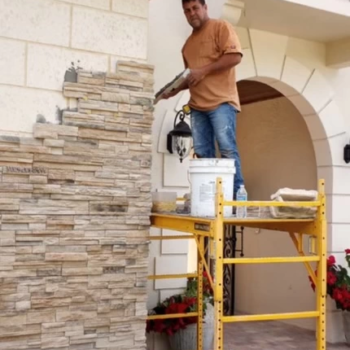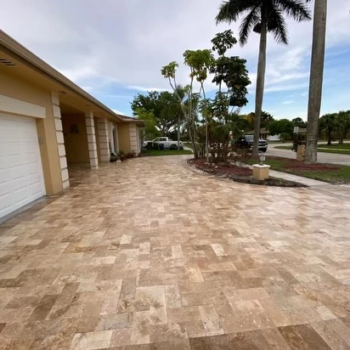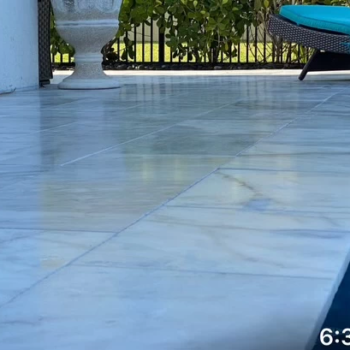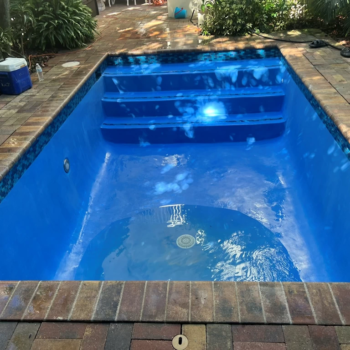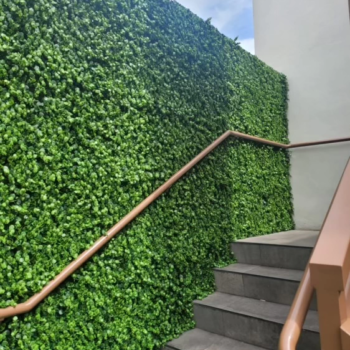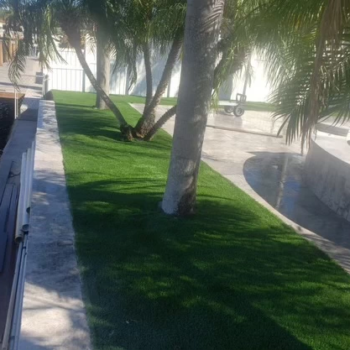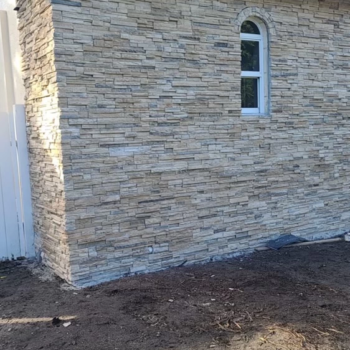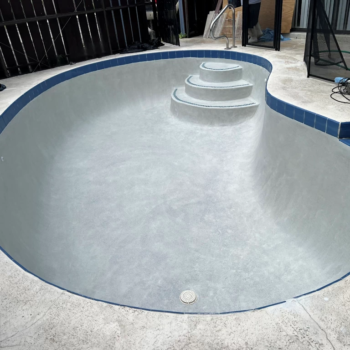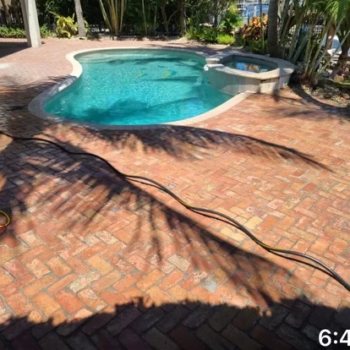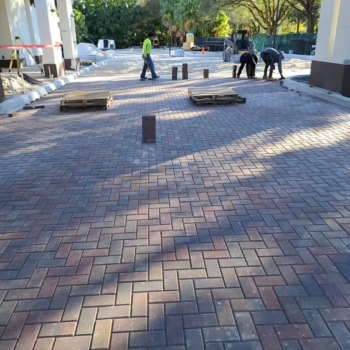About Us
At Sunstate, we transform outdoor spaces with professional paver installation, paver restoration, and premium artificial turf solutions. Whether you want a new patio, a driveway upgrade, or a fresh look for worn pavers, our skilled team delivers precise workmanship and long-lasting results.
With years of experience, we focus on quality, durability, and customer satisfaction. We use top-grade materials and pay close attention to detail. From design to completion, we treat every project like our own clean, efficient, and built to last.
Sunstate also provides expert artificial turf installation for residential yards, patios, and custom putting greens. Our turf stays lush, low-maintenance, and green year-round perfect for Florida homes. Whether you’re creating a pet-friendly lawn, a relaxing backyard retreat, or your own putting green, we help you design a space that looks great and performs beautifully.
At Sunstate, we believe your outdoor space should be functional, beautiful, and easy to enjoy. We’re here to make that happen—one surface at a time.
Why Us
Licensed & Insured
At Sunstate Turf and Hardscapes, we prioritize your peace of mind. We are fully licensed and insured, ensuring that your project is completed to the highest standards of professionalism and safety. Our commitment to quality and compliance means you can trust us with confidence for all your hardscaping needs.
Unparalleled Expertise
At Sunstate Turf and Hardscapes, we bring unmatched expertise to every project. With years of experience and a passion for excellence, our team delivers innovative solutions and impeccable craftsmanship. Whether it's transforming your landscape or enhancing your outdoor living space, trust us to provide expert guidance and superior results that exceed expectations.
Quality Assurance
At Sunstate Turf and Hardscapes, we are dedicated to ensuring the highest standards of quality in every project we undertake. From meticulous planning to precise execution, our team adheres to rigorous quality assurance protocols. We guarantee superior craftsmanship, durable materials, and attention to detail, ensuring that your outdoor spaces are not only beautiful but also built to last.
Innovation and Sustainability
Experience the difference that innovation and sustainability can make with Sunstate Turf and Hardscapes. Contact us today to learn more about our services and how we can help you create an outdoor space that is both stunning and eco-friendly.
Great Communication
At Sunstate Turf and Hardscapes, we believe that great communication is the foundation of successful projects. From the initial consultation to the final touches, our team is dedicated to keeping you informed and involved every step of the way.
Customer Oriented
At Sunstate Turf and Hardscapes, our customers are at the heart of everything we do. We are committed to delivering exceptional service and creating outdoor spaces that exceed your expectations. From the initial consultation to the final touches, we prioritize your needs, preferences, and satisfaction.
Years Experience
Stars Rate
Projects Executed
Customer Satisfaction
Frequently Asked Questions
Find quick answers for most common questions
A hardscape refers to the non-living, solid elements of landscaping that are integrated into outdoor spaces. These elements are typically constructed with hard materials such as stone, concrete, bricks, wood, or metal. Hardscaping involves the design, installation, and maintenance of features like patios, pathways, retaining walls, decks, pergolas, driveways, and other structures that enhance the functionality, aesthetics, and usability of outdoor areas.
Unlike softscapes, which include plants, trees, and other living elements, hardscapes provide structural support, define spaces, and often serve practical purposes such as creating seating areas, controlling erosion, or improving accessibility. Hardscape design can significantly influence the overall look and feel of a landscape, blending functionality with visual appeal to create cohesive outdoor environments.
The main difference between hardscape and landscape lies in their composition and purpose within outdoor design:
-
Hardscape:
- Composition: Hardscape refers to the non-living, solid elements of landscaping. These include structures and materials such as stone, concrete, wood, metal, and brick.
- Purpose: Hardscaping serves functional purposes such as creating pathways, driveways, patios, retaining walls, decks, and pergolas. It also defines the layout and structure of outdoor spaces, providing support and usability.
-
Landscape:
- Composition: Landscape includes the living, natural elements of outdoor design. This encompasses plants, trees, shrubs, flowers, grass, and other vegetation.
- Purpose: Landscaping is primarily focused on enhancing the natural environment, improving aesthetics, providing shade, creating habitat for wildlife, and contributing to environmental sustainability. It complements hardscaping by softening and integrating the built elements into the natural surroundings.
Key Differences:
- Materials: Hardscapes use hard materials like stone and concrete, while landscapes involve soft materials such as plants and soil.
- Function: Hardscaping provides structure, usability, and defines spaces, whereas landscaping focuses on enhancing beauty, creating ambiance, and supporting ecological balance.
- Design: Hardscape design is often more structured and architectural, whereas landscaping design is more organic and naturalistic.
In outdoor design, a harmonious blend of hardscape and landscape elements creates balanced and functional spaces that meet both practical needs and aesthetic preferences.
Adding a hardscape to your backyard offers several benefits:
-
Increased Usability: Hardscapes provide functional areas for various activities such as dining, entertaining, or relaxing. They can include features like patios, decks, or pathways that make your outdoor space more accessible and enjoyable.
-
Low Maintenance: Unlike softscape elements like grass or plants, hardscapes generally require less maintenance. They don't need watering, trimming, or fertilizing, making them a practical choice for busy homeowners.
-
Enhanced Aesthetics: Hardscape elements add structure, definition, and visual interest to your backyard. They can complement the natural landscape, create focal points, and improve the overall design and curb appeal of your property.
-
Improved Functionality: Hardscapes can solve common backyard challenges such as erosion control, uneven terrain, or limited space. Features like retaining walls, terraces, or stairs can help manage slopes and maximize usable areas.
-
Increased Property Value: Well-designed hardscape features can enhance the value of your property. They create additional living space, improve outdoor functionality, and appeal to potential buyers looking for attractive and well-maintained outdoor areas.
-
Year-Round Enjoyment: Hardscapes extend the usability of your backyard throughout the year. Whether it's a patio for summer barbecues or a fire pit for cozy winter gatherings, hardscape elements can make your outdoor space enjoyable in any season.
Overall, adding a hardscape to your backyard not only enhances its beauty and functionality but also provides long-term benefits in terms of maintenance, usability, and property value.
The cost of hardscaping can vary widely depending on several factors such as the type of materials used, the size and complexity of the project, labor costs in your area, and any additional features or customization. Here are some general cost considerations for common hardscape elements:
-
Patios: A basic patio made with concrete or gravel can start around $10-15 per square foot. However, higher-end materials like natural stone or pavers can increase the cost to $20-30 per square foot or more.
-
Walkways and Pathways: Simple pathways using materials like gravel or basic concrete can range from $6-10 per square foot. More decorative options such as stamped concrete or pavers can cost $15-25 per square foot.
-
Retaining Walls: The cost of retaining walls depends on the materials and height. Basic concrete blocks or treated wood might range from $15-25 per square foot, while natural stone or interlocking blocks could cost $25-40 per square foot or more.
-
Driveways: Asphalt driveways are typically the most affordable, ranging from $3-5 per square foot. Concrete driveways can cost $6-10 per square foot, while decorative options like stamped concrete or pavers can range from $10-30 per square foot or higher.
-
Outdoor Kitchens or Fireplaces: Building outdoor kitchens, fireplaces, or fire pits can vary greatly in cost depending on the materials and complexity. Basic setups might start around $5,000-10,000, while more elaborate designs with custom features could exceed $20,000 or more.
-
Water Features: Installing ponds, fountains, or waterfalls can also vary widely depending on size, materials, and complexity. Costs can range from a few hundred dollars for small, pre-fabricated features to several thousand dollars for custom-built installations.
It's essential to get multiple quotes from reputable contractors and discuss your specific needs and budget to get a more accurate estimate for your hardscaping project. Additionally, consider long-term maintenance costs and any permits or regulations that may apply in your area, as these can also impact the overall cost.
Yes, artificial grass is generally considered safe for various uses, but it's essential to consider a few factors:
-
Materials: Artificial grass is typically made from synthetic fibers like polyethylene or polypropylene, which are non-toxic and safe for human contact. These materials undergo rigorous testing to ensure they meet safety standards.
-
Infill Materials: Some artificial grass installations use infill materials such as silica sand or crumb rubber (recycled rubber tires) to enhance stability and resilience. While these materials are commonly used and considered safe when properly installed and maintained, there has been some debate and ongoing research regarding potential health concerns, particularly related to crumb rubber infill used in sports fields.
-
Heat Retention: Artificial grass can absorb heat and become warmer than natural grass under direct sunlight. This heat retention can be uncomfortable to walk on during hot weather but is generally not considered harmful.
-
Maintenance and Cleaning: Regular maintenance, including brushing, rinsing, and occasional disinfection, helps keep artificial grass clean and safe. Proper drainage systems are also crucial to prevent water accumulation and ensure a hygienic surface.
-
Environmental Impact: Artificial grass offers water conservation benefits by eliminating the need for watering, reducing pesticide and fertilizer use, and maintaining a green appearance year-round. However, it is a synthetic product and has environmental considerations related to manufacturing, disposal, and potential microplastic pollution.
Overall, when installed correctly and maintained properly, artificial grass is considered safe for residential and commercial use. If you have specific concerns or considerations, it's advisable to consult with professionals who specialize in artificial turf installation and maintenance to ensure your installation meets safety standards and best practices.
Artificial grass has both environmental benefits and considerations that should be weighed when considering its use:
Environmental Benefits:
-
Water Conservation: Artificial grass significantly reduces water consumption compared to natural grass lawns, which require regular watering to stay healthy and green, especially in arid regions or during droughts.
-
Reduced Chemical Usage: Maintaining natural grass often involves the use of pesticides, herbicides, and fertilizers. Artificial grass eliminates the need for these chemicals, reducing potential runoff into waterways and minimizing environmental pollution.
-
Year-Round Greenery: Artificial grass maintains its lush appearance throughout the year without the seasonal fluctuations and maintenance requirements of natural grass, reducing overall environmental impact associated with lawn care.
Environmental Considerations:
-
Manufacturing Impact: The production of artificial grass involves synthetic materials such as polyethylene or polypropylene, which are derived from non-renewable resources. Manufacturing processes can also contribute to carbon emissions and other environmental impacts.
-
Disposal Challenges: At the end of its lifespan (typically 10-20 years), artificial grass can be challenging to recycle due to its mixed materials and the presence of contaminants like infill materials (e.g., rubber crumb). Disposal in landfills can contribute to long-term environmental issues.
-
Heat Island Effect: Artificial grass can absorb and retain heat, contributing to the urban heat island effect in urban areas. This can potentially increase local temperatures and energy use for cooling.
-
Microplastic Concerns: Over time, artificial grass can degrade, releasing microplastics into the environment. These microplastics can potentially accumulate in soil and water systems, posing risks to wildlife and ecosystems.
Mitigating Environmental Impact:
To mitigate the environmental impact of artificial grass, consider the following measures:
-
Choose High-Quality Products: Select artificial grass products made from recyclable materials and manufactured with eco-friendly processes.
-
Proper Installation and Maintenance: Ensure proper drainage systems are installed to manage water runoff effectively. Regular maintenance, including cleaning and brushing, can extend the lifespan of artificial grass and reduce environmental risks.
-
Disposal and Recycling: Explore options for recycling artificial grass at the end of its life. Some manufacturers offer recycling programs for used turf materials.
-
Consider Alternatives: Depending on your location and preferences, consider low-maintenance landscaping alternatives such as native plants, gravel, or permeable paving that can provide similar benefits with reduced environmental impact.
In conclusion, while artificial grass offers water-saving benefits and reduced chemical use compared to natural grass, its environmental impact should be carefully considered and managed through responsible installation, maintenance, and disposal practices.
Artificial grass, also known as synthetic turf or fake grass, is typically made from several key components designed to mimic the appearance and feel of natural grass while offering durability and low maintenance. Here are the primary materials used in the construction of artificial grass:
-
Synthetic Fibers:
- Polyethylene (PE): This is the most common material used for the blades (fibers) of artificial grass. PE fibers are soft, resilient, and have a natural look and feel. They are often used for landscaping and residential applications.
- Polypropylene (PP): PP fibers are less common but are sometimes used for artificial grass, especially in lower-cost options. PP fibers are generally stiffer and less resilient compared to PE.
-
Backing Material:
- The backing of artificial grass provides stability and support for the fibers. It is typically made from either polyurethane (PU) or latex. PU backing is more durable and resistant to water, while latex backing is more commonly used and provides flexibility.
-
Infill Materials:
- Infill is used to provide stability, support the blades upright, and enhance the performance of artificial grass. Common infill materials include:
- Silica Sand: Often used for basic installations to provide ballast and stability.
- Rubber Granules (Crumb Rubber): Made from recycled rubber tires, crumb rubber infill improves shock absorption and resilience, making it suitable for sports fields and high-traffic areas.
- Organic Infill: Some eco-friendly options use materials like cork or coconut husks as infill, reducing the use of synthetic materials.
- Infill is used to provide stability, support the blades upright, and enhance the performance of artificial grass. Common infill materials include:
-
Coating and Additives:
- Artificial grass may also include coatings and additives to enhance durability, UV stability (to prevent fading), and flame resistance. These additives are applied during manufacturing to improve the performance and longevity of the turf.
Artificial grass is designed to withstand various weather conditions, heavy use, and UV exposure without requiring watering, mowing, or fertilizing. The choice of materials and construction can vary depending on the intended use (e.g., landscaping, sports fields, playgrounds) and specific performance requirements.
